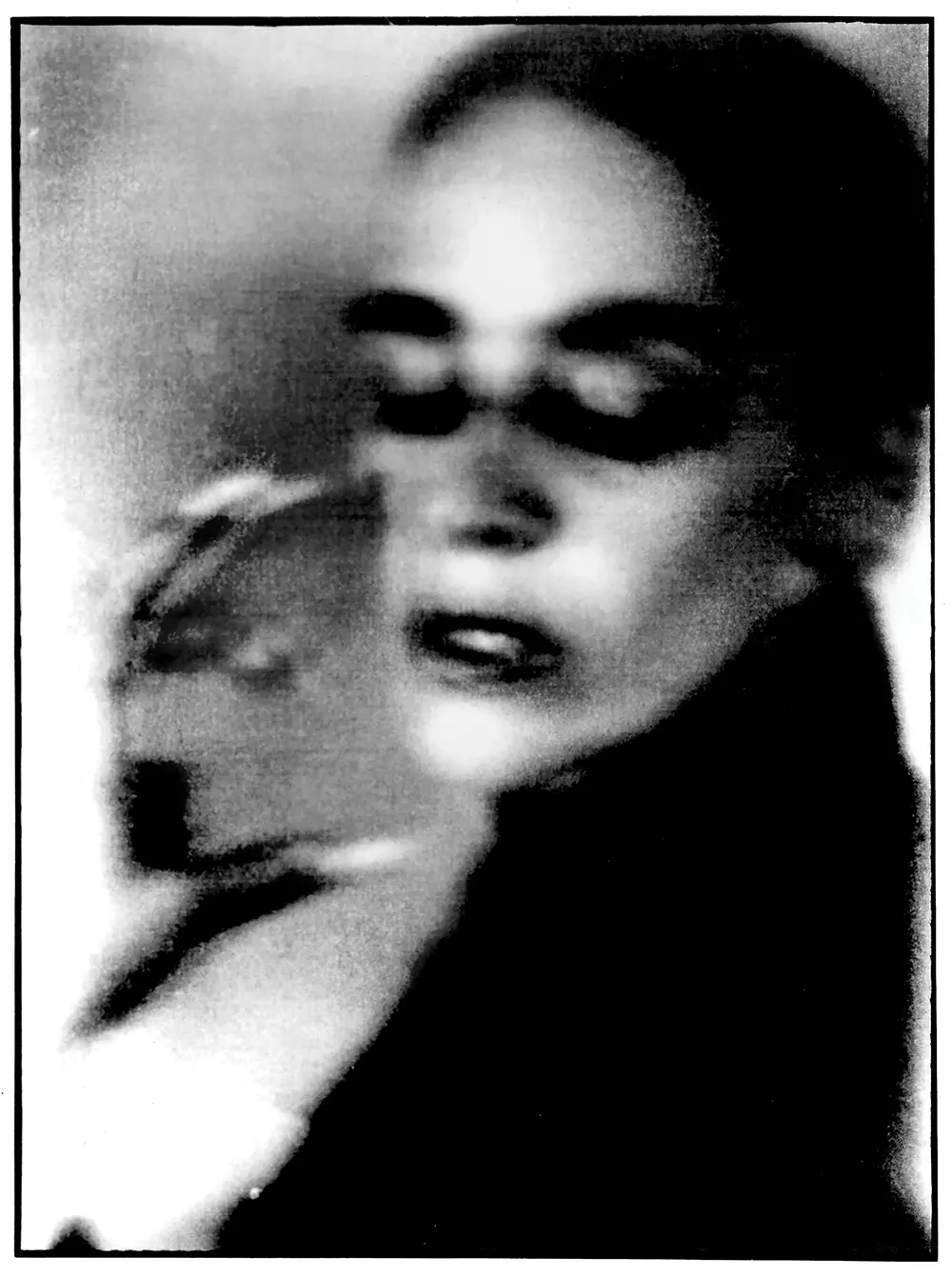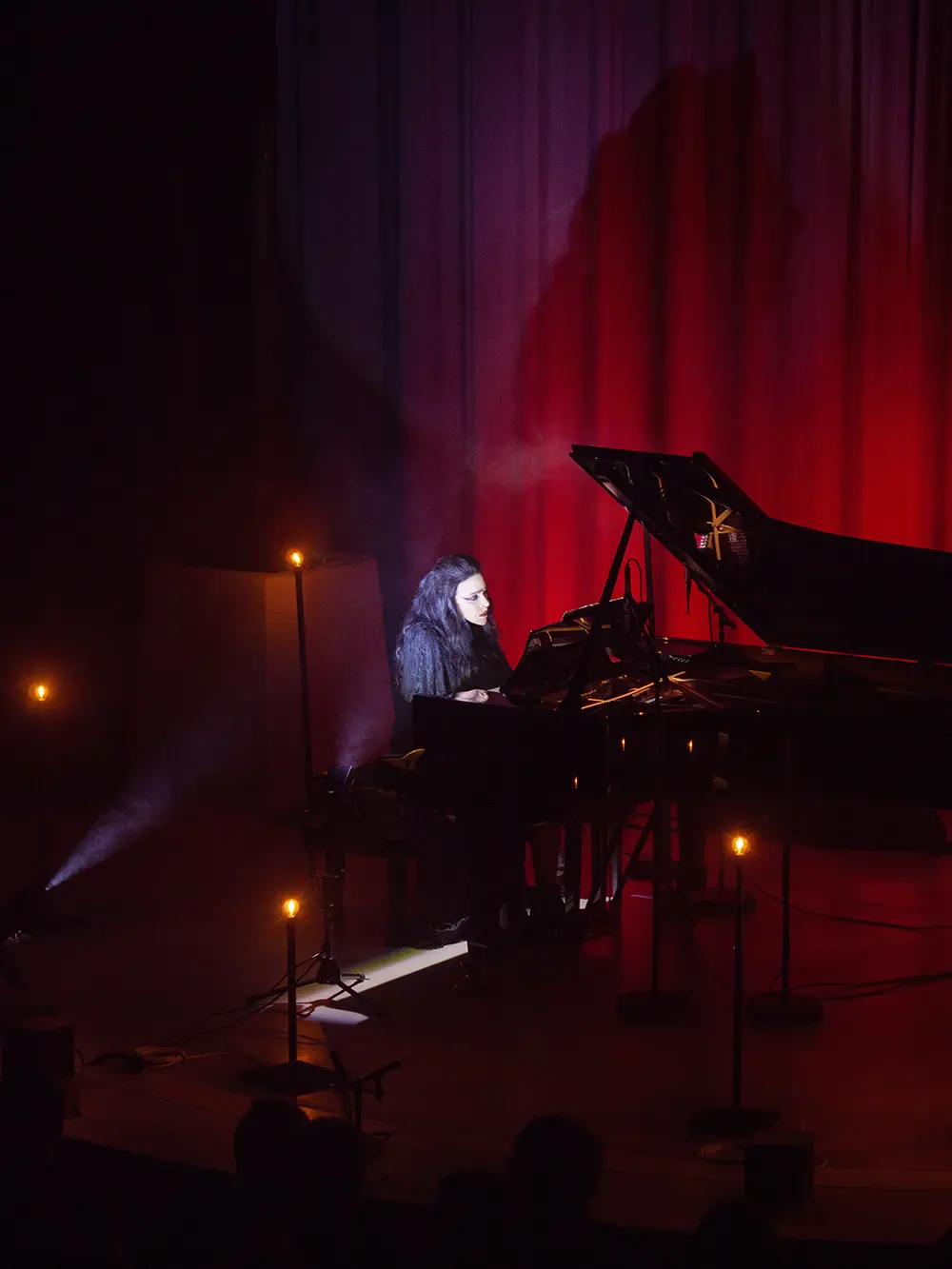Diamanda Galás Releases Two New Recordings on Día de Muertos
Posted on Nov 01, 2025 by Intravenal Sound Operations

You Must Be Certain of the Devil (remaster) + De-formation: Second Piano Variations
On Saturday November 1 (Día de Muertos), Diamanda Galás released two powerful works: a newly remastered reissue of her 1988 album You Must Be Certain of the Devil, and De-formation: Second Piano Variations, a live recording of her meticulously reworked score, captured during a performance at the Pinault Gallery in spring 2025.
Together, these two recordings reaffirm Diamanda Galás’s place as a singular composer, performer, and cultural voice - one whose work continues to push against the boundaries of form, faith, and fury.

You Must Be Certain of the Devil
(1988 / 2025 reissue + remaster)
Stream or Purchase Now
Riding in on an eviscerating vocal alarm call and originally released in 1988 as the final installment of her Masque of the Red Death trilogy, Diamanda Galás' You Must Be Certain of the Devil is as unflinching now as it was on release in 1988. It remains a swaggering, furious fuck-you to those who might cast aside the sick and dying in the name of faith and scripture.
Often misunderstood as simply “dark” for its subject matter, You Must Be Certain of the Devil in fact shines a light of such total exposure it leaves nowhere to hide, forensically unmasking the fury and pain of real grief and the vast spectrum of emotions rendered by the AIDS epidemic. It is an album that looks you square in the eye, pins you against a wall and makes you look at and feel the horror the virus visited upon a person, the knowledge of certain death in a hostile environment, and the hypocrisy of those who claim to be Samaritans or protectors.
Begun in 1984 and haunted by her brother’s death in 1986, the Masque of the Red Death trilogy moved from anguish to political knowledge, shaped by America’s mounting AIDS epidemic and You Must Be Certain of the Devil spears you in the eternal present of trauma, by an artist who calls herself a “Greek orthodox atheist”: a person certain of the devil with no hope in God.
The reissue features remastered audio by Heba Kadry, vinyl lacquers cut by Paul Gold at Salt Mastering, and photography by Emily Andersen.


De-formation: Second Piano Variations
(Live, Paris 2025)
Stream or Purchase Now
"In a striking visual performance, Diamanda Galás plays De-formation: Piano Variations. There is a strong sense of dialogue with the deceased and Galás viscerally negotiates the thresholds of embodiment-testing the limits of perception, presence, and recall." — Xenia Benivolski The Wire June 2025
In the Paris springtime of 2025, Diamanda Galás performed the Second Piano Variations of her De-formation, a recomposition of her solo piano work from ”Das Fieberspital (The Fever Hospital),” a musical setting of Georg Heym’s early 20th Century expressionist poem about patients isolated and stigmatised by yellow fever. In performance, the intimate concert room in the basement of the Pinault Collection became hushed and reverent, soft lighting arranged like church candles casting gothic shadows across the stage for Galás' first live performance since 2018.
The first iteration, De-formation: Piano Variations, was released in 2020. This new version rewrites the forceful original, prompted by an invitation to perform it live. Galás enacted an archaeology on her original, "blasting through the original structure I had created, then recreating it for this performance, block by block." With pianist Thomas Feng, she prepared a full score from which she relearned the piece, recomposing phrasing, silences, dynamic changes, and chord progressions, finding moments for pause and power. She worked for months on combining foot pedals to exact the dynamics she now heard (the score will be available in 2026).
The intentional aggression of Galás' playing draws out power into a cumulus of fury that falls away into near-silence. An 8-legged arachnid drops precipitously on the belly of the instrument, delicately falling towards melody, before this pale grace is stripped of its gentle resonances to be remade in the brutalism of the De-formation, where notes crack as hammer hits metal.
De-formation: Second Piano Variations gives breath and space into the fetid air of the fever hospitals that are its subject, retaining the intensity of its execution. The 2025 live version takes on the qualities of a studio recording. Through meticulous formal scoring, it became a definitive work, while the 2020 original remains a primarily improvised performance, captured in the project's earliest stages.



